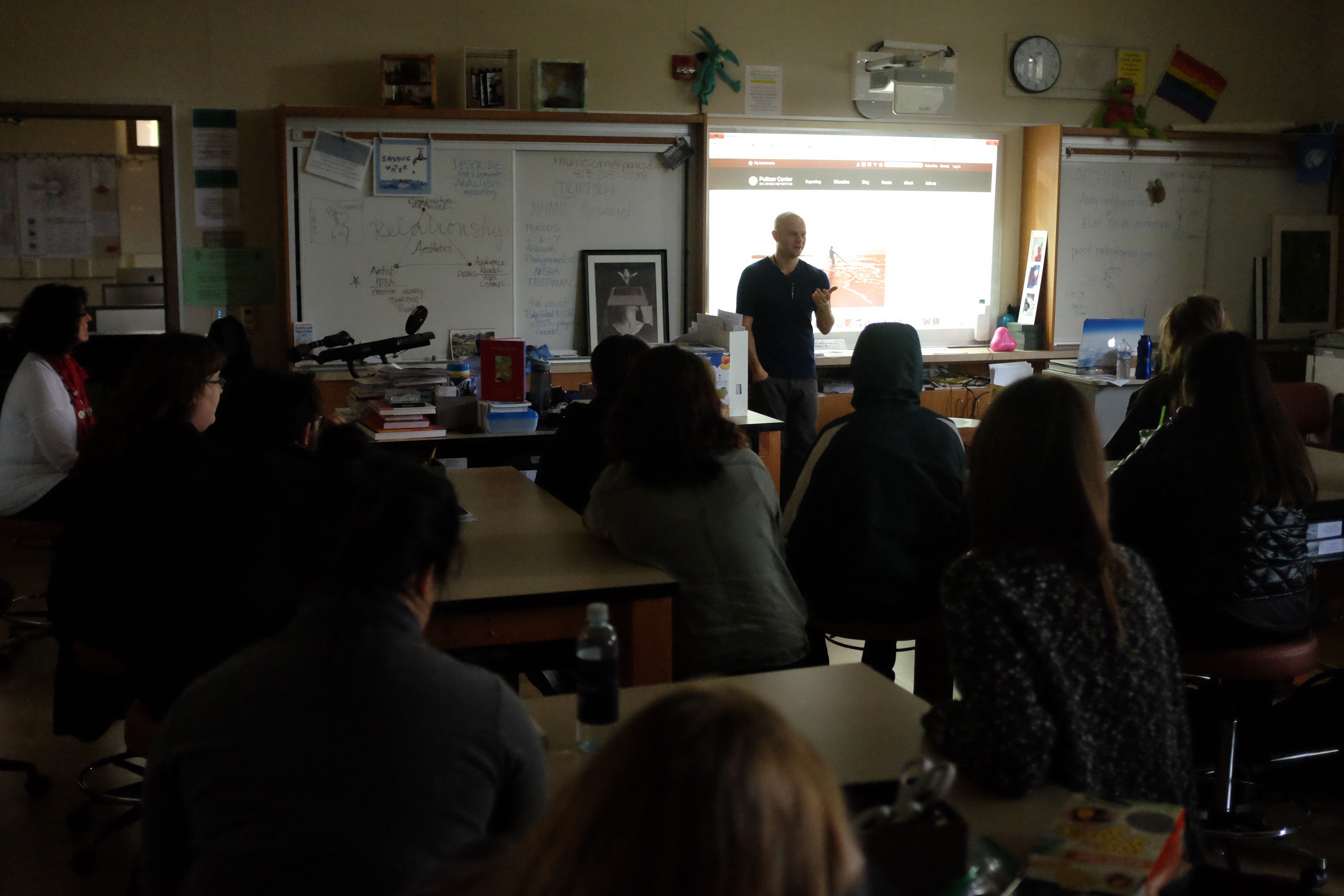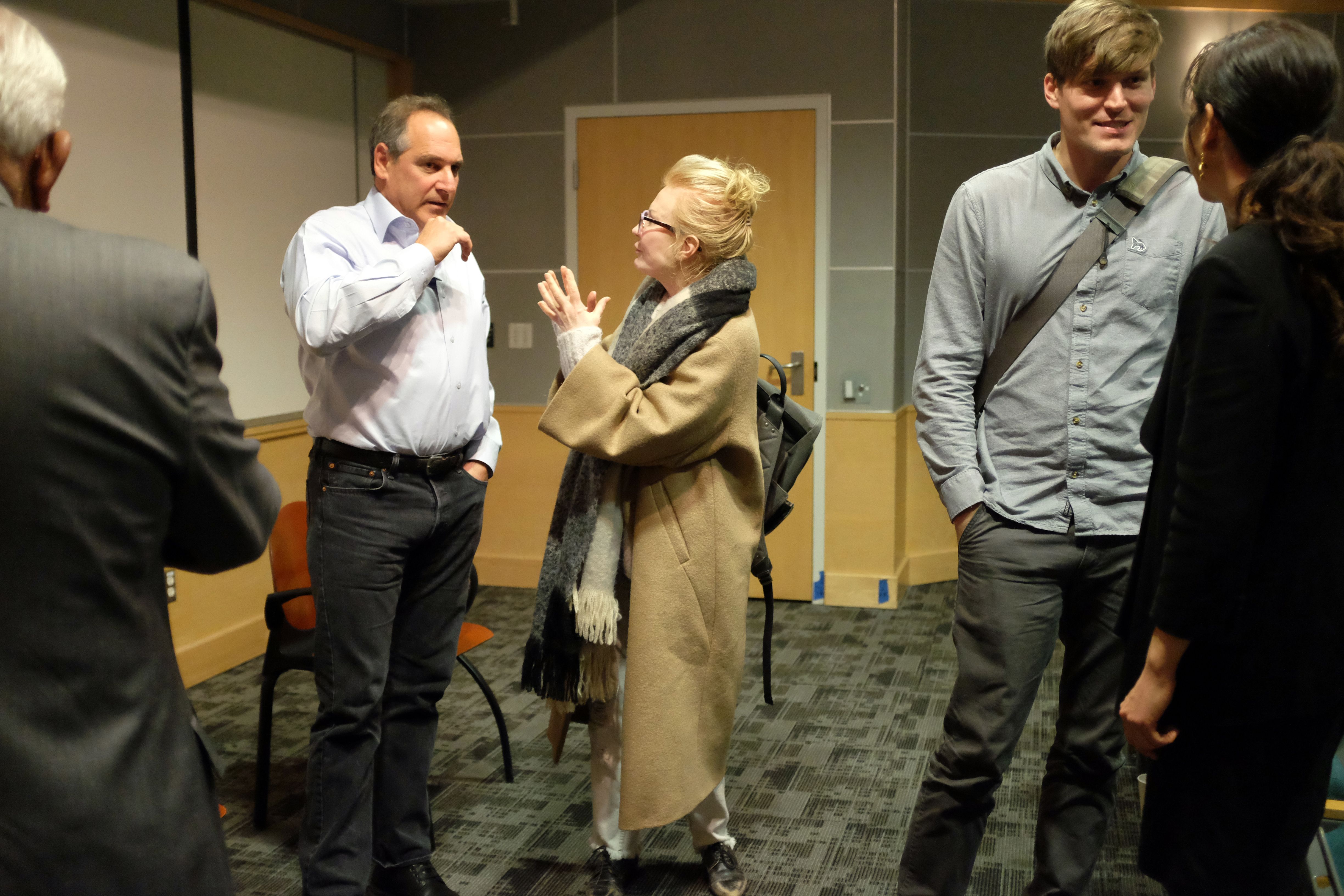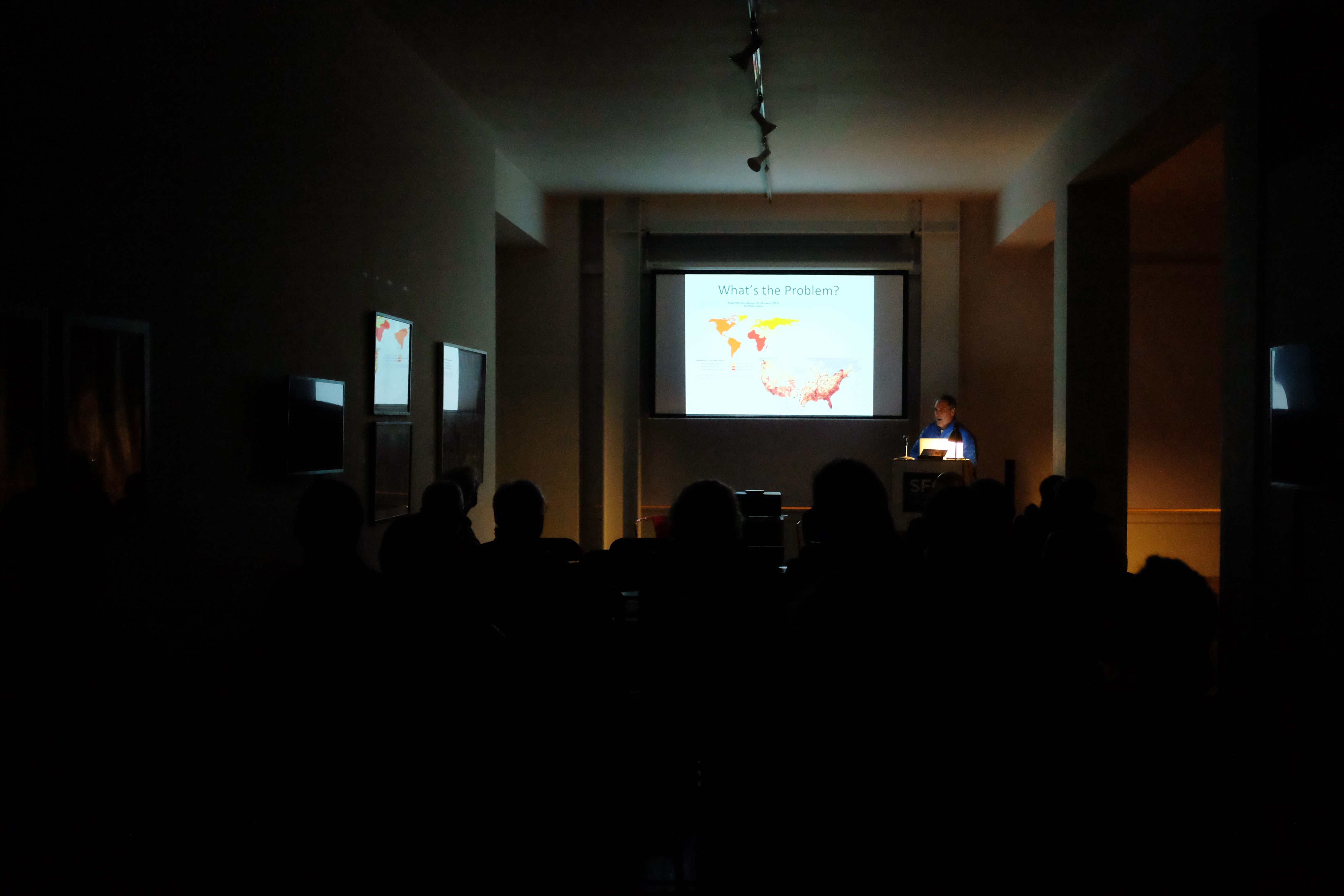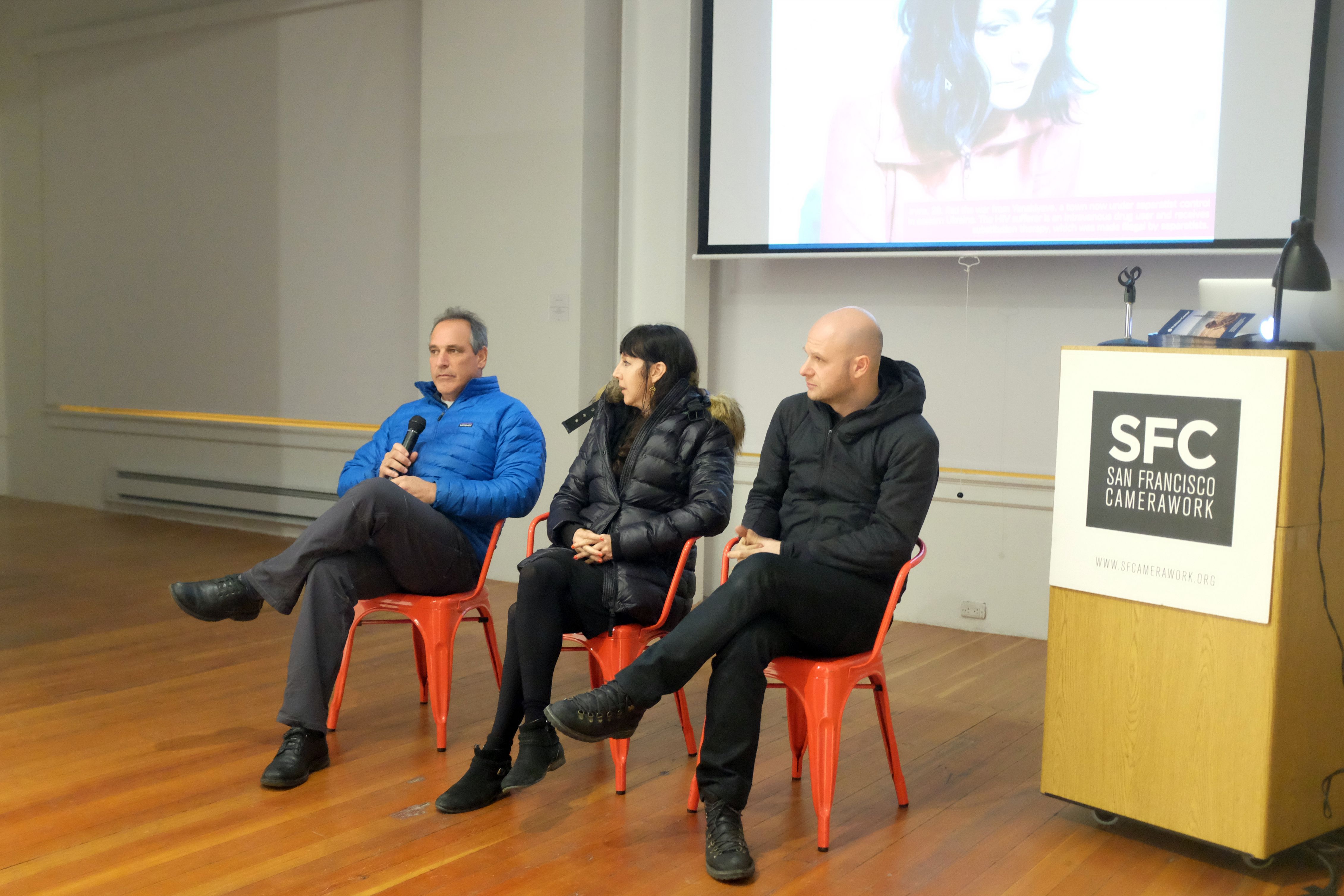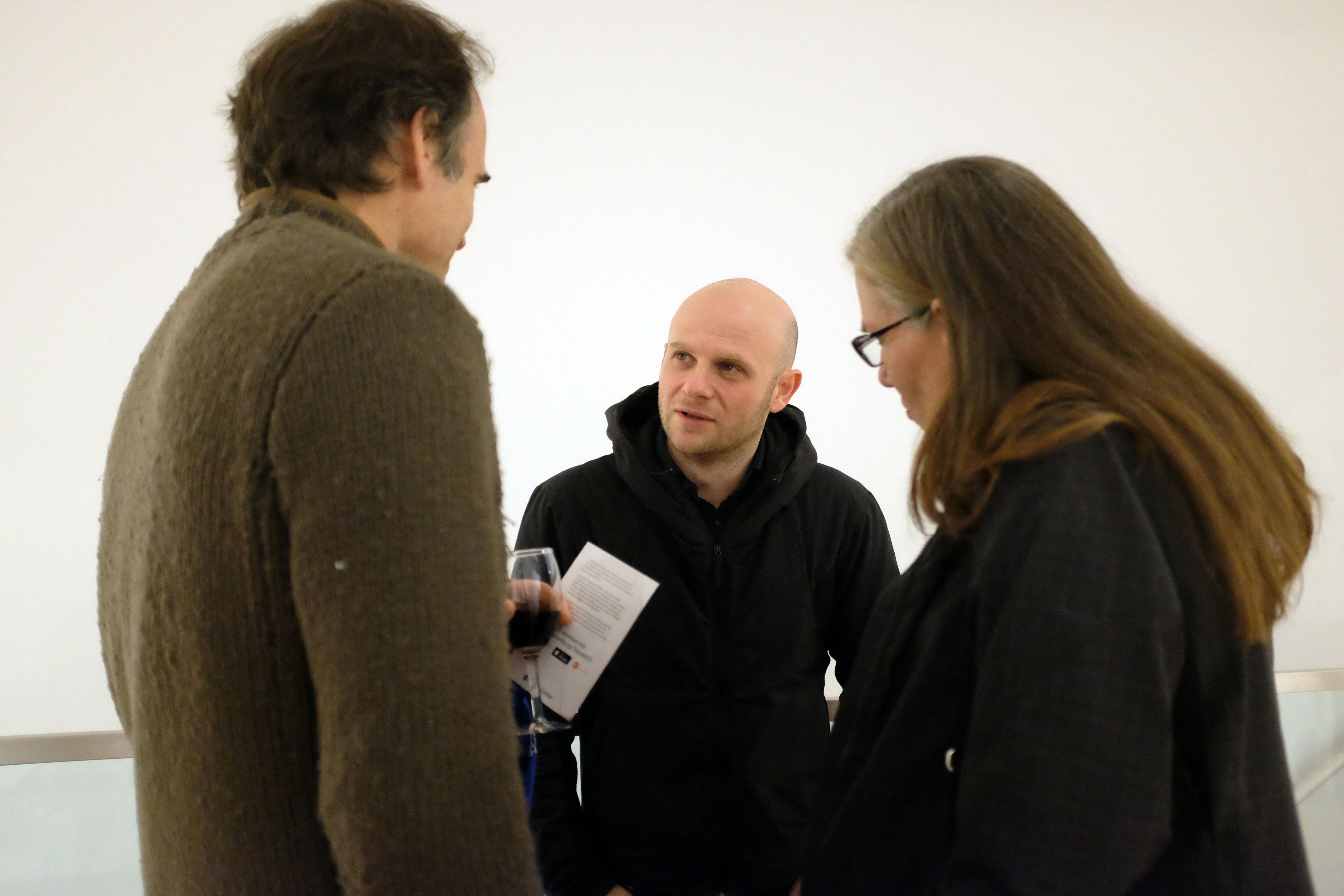Photographer and Pulitzer Center grantee Misha Friedman visited schools in California during one week in early January 2017 to discuss his work in the Pulitzer Center book To End AIDS. Towards the end of the week journalists Jon Cohen and Amy Maxmen joined him for two panels in the San Francisco area on what it would take to end AIDS. Friedman and Cohen also met with students and faculty at one of the newest Campus Consortium partners, the University of California Berkeley Graduate School of Journalism.
On Monday, January 9, 2017, Friedman spoke to four classes of journalism, magazine, photography and yearbook students at Palo Alto High School. The Mercury News covered his visit.
Students were interested in how he gained access to the intimate situations he has photographed.
“Effort,” Friedman explained. “When they get bored of you, that’s when the good pictures happen. It takes time to build that relationship. By the 3rd or 4th visit I just become part of their lives.” He repeatedly urged students to apply themselves.
Another student was curious about how Friedman chooses the stories he photographs. Friedman answered, “The key is conflict. Between how something is perceived and the story you are about to find.”
Throughout the day, Friedman spoke to 269 students at the high school. Students and teachers were engaged and excited about the Pulitzer Center’s presence at the school. “We’ve had the Pulitzer Center here once before and it was fantastic,” said photography teacher Margo Wixsom who also saw Pulitzer Center Grantee Daniella Zalcman speak to students last fall.
The following day, Friedman continued his week at Herman Middle School in San Jose, California, speaking to 64 students.
On Wednesday, journalists Amy Maxmen and Jon Cohen joined the Pulitzer Center staff for the second half of the week, presenting with Friedman at UCSF and at SF Camerawork on Thursday about their work in To End AIDS. Maxmen presented her work on new infections, particularly focusing on young women aged 15-24. She explained the prevalence of blessers in South Africa, men who often give younger women gifts or money in exchange for sex. She also explored the systemic societal structures that make it difficult for women to keep up with their PrEP treatments. Friedman spoke about his work in Ukraine and South Africa, using his images to illustrate different perspectives on living with HIV. He showed an image of a woman in Ukrain walking to a center to retrieve her medication on a winter day in -19 ° C weather. He also spoke about returning to subjects to photograph them years after his first encounter with them in South Africa to demonstrate the impact of the epidemic.
Cohen has been covering HIV and AIDS since 1990. His work from six different places was included in the Pulitzer Center To End AIDS. Cohen also presented at UCSF: “Jon Cohen is not just a great but one of the few remaining science writers that write on HIV,” Dr. Paul Volberding said in his introduction. Volberding, the Director of UCSF AIDS Research Institute and Director of Research for UCSF Global Health Sciences introduced the speakers at UCSF.
Cohen spoke about his experience reporting on the epidemic for years. “Everyone knows that the best situation to ending an epidemic is prevention. I think San Francisco has led the way. I’ve worked in 50 countries and again and again I’ve returned to San Francisco to see what isn’t being done elsewhere.” Cohen concluded, “I really applaud this city for showing the world how to do this the right way."
